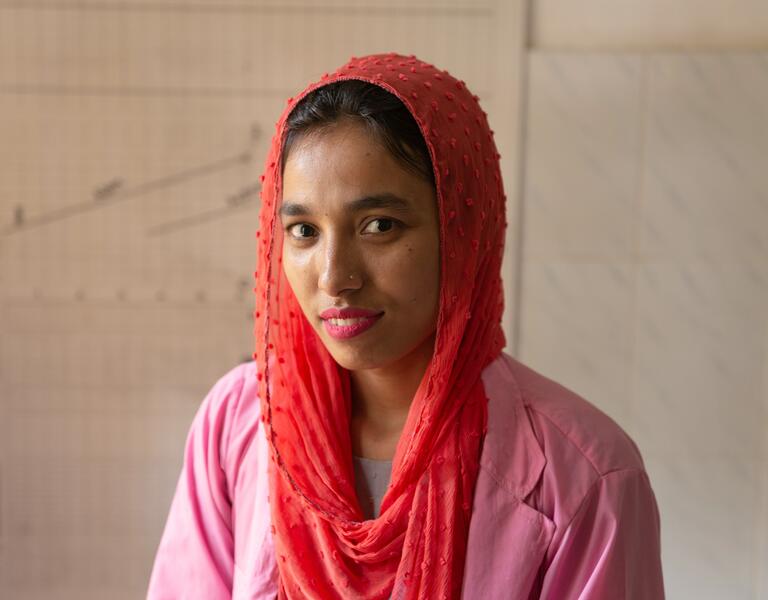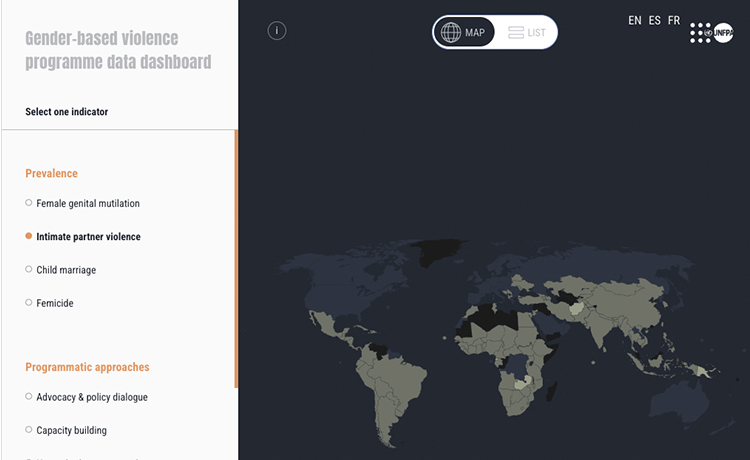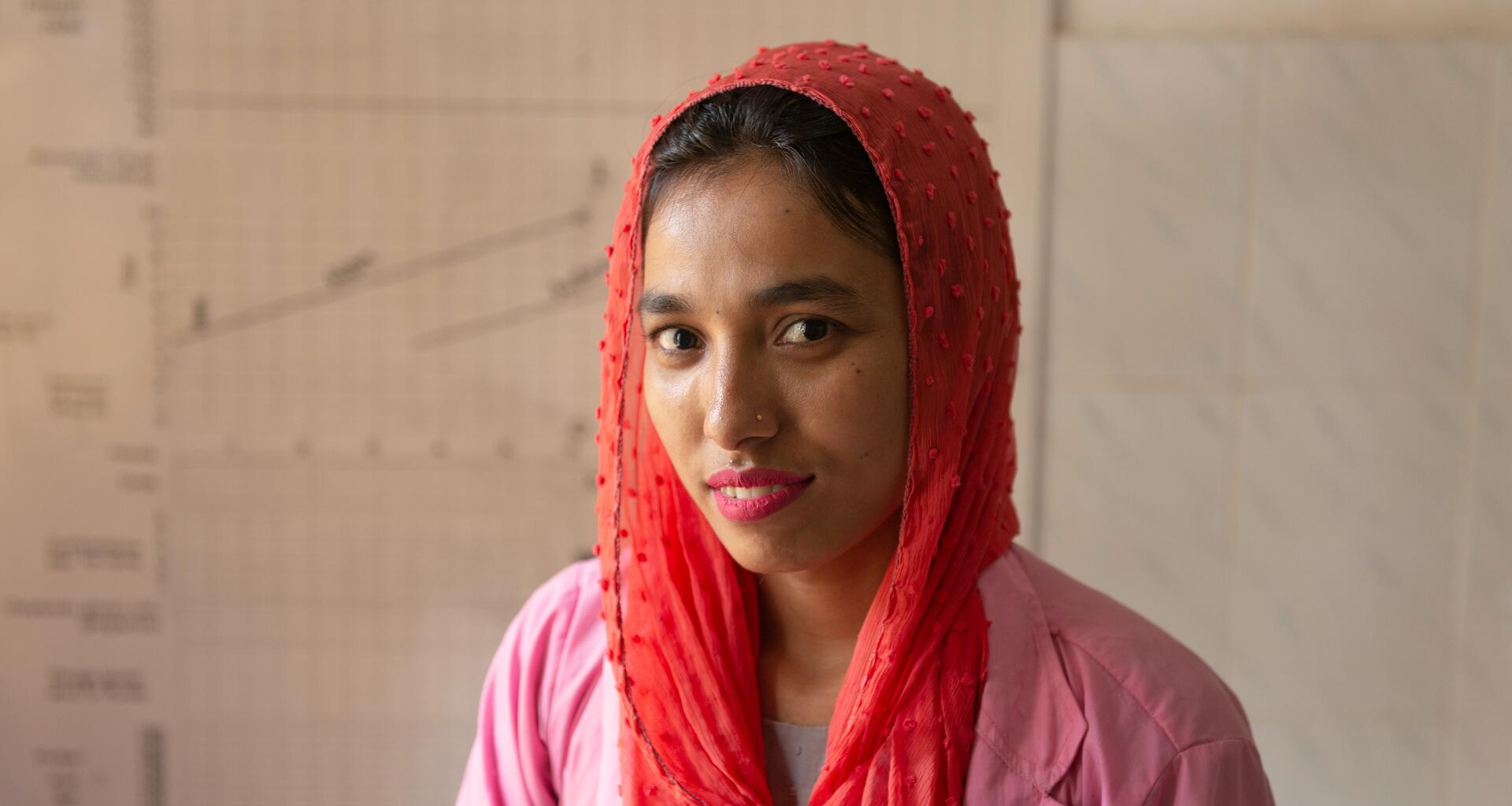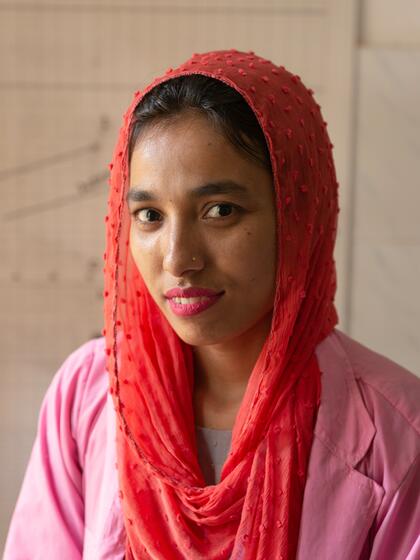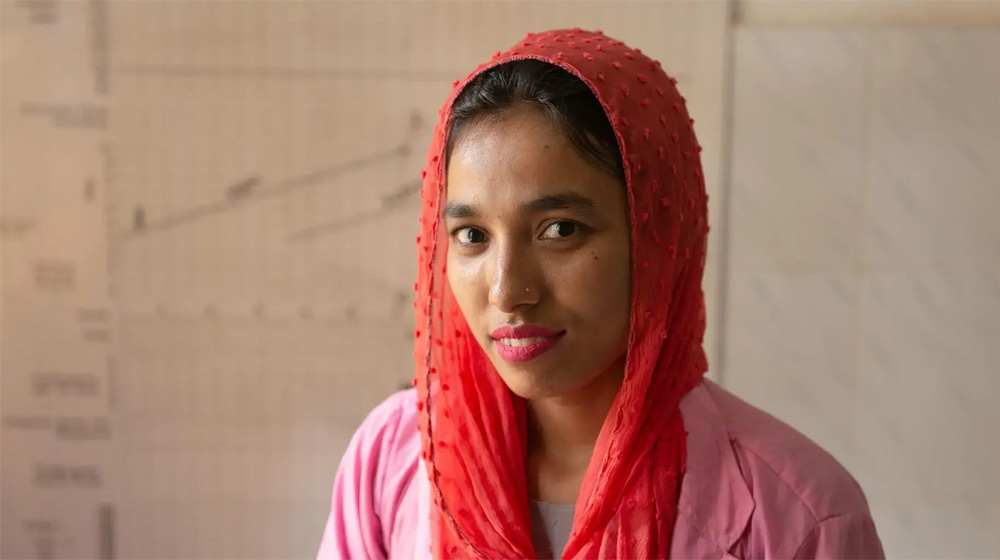One of the most prevalent human rights violations in the world, gender-based violence knows no social, economic or national boundaries. It undermines the health, dignity, security and autonomy of survivors. And it remains shrouded in a culture of silence, supported by cultural beliefs and values that sustain, justify or dismiss it as an ordinary component of male-female relationships.
UNFPA, as a lead agency in working to respond to and reduce gender-based violence, supports programmes in more than 150 countries and territories in humanitarian, peace and development settings.
Details of UNFPA’s gender-based violence programmes, including prevalence and programming data, country profiles, and human-interest stories, can be found in this dashboard.
While gender-based violence is not limited to violence against women and girls, almost 1 in 3 women, or approximately 736 million people, have been subjected to intimate partner violence, non-partner sexual violence or both at least once in their lifetime, according to World Health Organization data from 2021. Violence often starts early in the lives of women, including non-partner sexual violence. Of those who have been in a relationship, almost 1 in 4 adolescent girls aged 15 to 19 have experienced physical and/or sexual violence from an intimate partner or husband. Every 10 minutes, a woman or girl is killed by their intimate partner or family member.
The UNFPA gender-based violence data dashboard shows intimate partner violence prevalence data for countries and territories worldwide, disaggregated by location, age, education, residence, employment and wealth. This is the only available dashboard with data at the subnational level to support more detailed analysis.
The top 10 countries with the highest prevalence (in percentage) of intimate partner violence, according to UNFPA data from 2020:
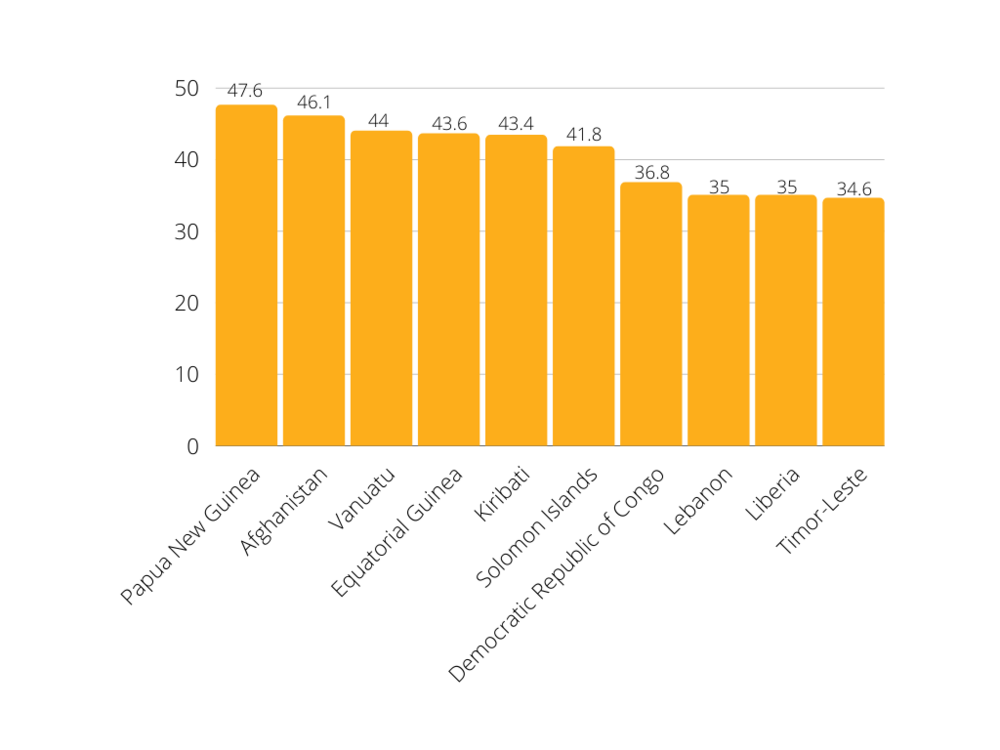
Violence is pervasive in all spaces women occupy – including digital spaces. UNFPA continues to address technology-facilitated gender-based violence through not only defining and measuring the scope of the problem, but also finding ways to prevent and respond to rapidly evolving mechanisms of violence, while convening global experts and building capacity across sectors.
Worldwide, data from the Centre for International Governance Innovation indicates that 59.9 per cent of women with Internet access have personally experienced some form of technology-facilitated violence. Research by CNN as Equals and Plan International has shown that 75 per cent of women and girls aged 13 to 24 have faced harmful content online at some point, with more than one in 10 experiencing it daily or almost daily.
When a woman or girl has been subjected to gender-based violence, there are short and long-term consequences for her physical, mental and sexual and reproductive health. Injuries, unintended pregnancies, sexually transmitted infections and gynecological disorders, as well as anxiety, depression, post-traumatic stress disorder and self-harm are only some of the impacts survivors may face. For example, survivors of intimate partner violence have a twofold increased risk of undergoing an induced abortion, and are 50 per cent more likely to have a sexually transmitted infection or HIV.
Gender-based violence is not only a violation of the rights of women and girls. The impunity enjoyed by perpetrators, and the fear generated by their actions, has an effect on all women and girls. The social and economic costs are enormous, curbing the contributions that women and girls can make to international development, peace and progress, and taking a toll on a global level.
UNFPA works to comprehensively address gender-based violence across the continuum of humanitarian, development and peace-responsive actions in more than 150 countries and territories around the world. In 2022 alone, UNFPA invested more than $454 million in eliminating gender-based violence and harmful practices.
UNFPA works in partnership with women’s and youth feminist organizations, networks and movements; civil-society organizations; governments; academic and research institutes; and other partners to support initiatives to end violence against women, including through prevention programming, service delivery, policy and laws, and data and research.
Responding to gender-based violence in all contexts
UNFPA supports comprehensive, survivor-centred responses in humanitarian and development settings through quality health care, social services, and legal and justice support. At the core of UNFPA’s approach are the rights to safety, confidentiality, non-discrimination and self-determination for all survivors. Guidance is available in the Flourish: UNFPA Gender-based Violence Operational Plan.
To be sure, demographic shifts and challenges linked to climate change, the protracted nature of crises and the frequency of conflicts, as well as population movements, are rendering conventional distinctions between “humanitarian” and “development” programming increasingly irrelevant. In both situations, there is a dramatic increase in gender-based violence. Working across the continuum to respond helps ensure coherence across development, humanitarian and peace-responsive actions. In every context, our initiatives are geared towards strengthening preparedness and promoting long-term development, as well as enhancing local capacities with a focus on risk reduction and resilience building, among others. Key guidance documents: UNFPA Strategy and Operational Plan to Scale Up and Strengthen Interventions on Gender-Based Violence in Emergencies 2023–2025 and Addressing Gender-Based Violence Across Contexts.
One key initiative for survivors is the integration of essential services on sexual and reproductive health into programmes, policies and advocacy across many sectors. As health services are among the first places that survivors seek assistance, UNFPA leverages this opportunity to reach affected women and girls. Those in need of support may be linked to case-management services and referred to support such as life-saving medical services and supplies, cash or voucher assistance, dignity kits containing essential items, and psychosocial services and legal support.
From 2023 to 2026, UNFPA is implementing Women at the Centre, a global programme that seeks to improve the accessibility and availability of quality response services for survivors of gender-based violence, with a focus on the most marginalized. The programme is building a professional social-service workforce equipped with the skills needed to strengthen case management in Azerbaijan, El Salvador, Indonesia, Madagascar and Zimbabwe.
Between 2024 and 2027, UNFPA is rolling out Making All Spaces Safe, a global programme tackling the rising and evolving threat of technology-facilitated gender-based violence (TFGBV) globally and nationally in Kenya and Benin. This initiative is bridging existing gaps in addressing TFGBV through comprehensive and survivor-centred programming that integrates digital literacy into prevention and response mechanisms, and mitigates harm through rights-based law reform and safety-by-design standards.
UNFPA also plays a role in setting standards for survivor-centred care in line with the Essential Services Package for Women and Girls Subject to Violence and the Interagency Minimum Standards on Gender-Based Violence in Emergencies Programming. UNFPA is the Inter-Agency Standing Committee–mandated lead agency on gender-based violence in emergencies, leading the Gender-Based Violence Area of Responsibility, the global forum for coordination on prevention, risk mitigation and response in humanitarian settings.
Preventing gender-based violence
The prevalence of gender-based violence is symptomatic of pervasive inequality due to harmful social and gender norms that restrict women and girls from having agency over their own bodies and from participating in economies and decision-making spaces.
In its efforts to end gender-based violence, UNFPA works to change harmful social and gender norms that perpetuate gender inequality. UNFPA works in partnership with UN Women, the World Health Organization and the UN Development Programme to implement strategies to prevent gender-based violence as outlined in the RESPECT framework. For example, UNFPA works with men and boys to promote positive masculinities with the aim of advancing gender equality and ending violence and harmful practices against women and girls, while remaining accountable to feminist movements.
UNFPA also uses comprehensive sexuality education in and out of school as a primary prevention strategy to end gender-based violence, since it helps adolescents nurture positive gender-equitable attitudes and values, which are linked to reduced violence and healthier, equitable, non-violent relationships. This early intervention can have long-lasting impacts across the lives of women and men.
Supporting laws and policies
Gender-based violence is a human rights violation and is the result of structural, deep-rooted discrimination, which requires legislative, administrative and institutional measures and reforms, including the eradication of gender stereotypes.
UNFPA supports governments in the implementation of international agreements including the International Conference on Population and Development, the Sustainable Development Goals, the 2030 Agenda, the Convention on the Elimination of All Forms of Discrimination Against Women and the Beijing Platform for Action. UNFPA has contributed to strengthening national policies and accountability and legal frameworks, including laws on gender-based violence.
Measuring the problem
UNFPA works extensively in collecting data and generating evidence to understand the prevalence, incidence and impact of gender-based violence worldwide. This provides the foundation for informed decision-making, resource allocation and the development of policies and programmes that have a meaningful impact on reducing gender-based violence.
In 2016, UNFPA and the Australian Department of Foreign Affairs and Trade launched the kNOwVAWdata initiative in the Asia Pacific region. With support from the Joint EU–UN Spotlight Initiative, UNFPA has now scaled up the kNOwVAWdata initiative into a further five regions. This initiative provides quality technical support and capacity building for the ethical collection of evidence, as well as support in translating these data into evidence-based policies. https://www.unfpa.org/knowvawdata
UNFPA also supports the Gender-Based Violence Information Management System, which is used in crisis settings, as well as an adapted version of this system for development settings. These systems enable the safe collection, storage, analysis and sharing of data reported by survivors.
UNFPA is also a partner in the UN Trust Fund to End Violence Against Women, a global grant-making mechanism that invests in initiatives by civil-society organizations around the world aimed at ending gender-based violence through prevention, law and policy implementation and providing access to essential services for survivors.
Across every nation and cultural context, there is a pressing need for increased activism to guarantee that women and girls, in all their diversity, can lead lives free from violence and coercion. UNFPA actively promotes and supports the prevention and elimination of violence against women and girls in all its forms, including active participation in the 16 Days of Activism against Gender-Based Violence.
Updated 25 November 2024
